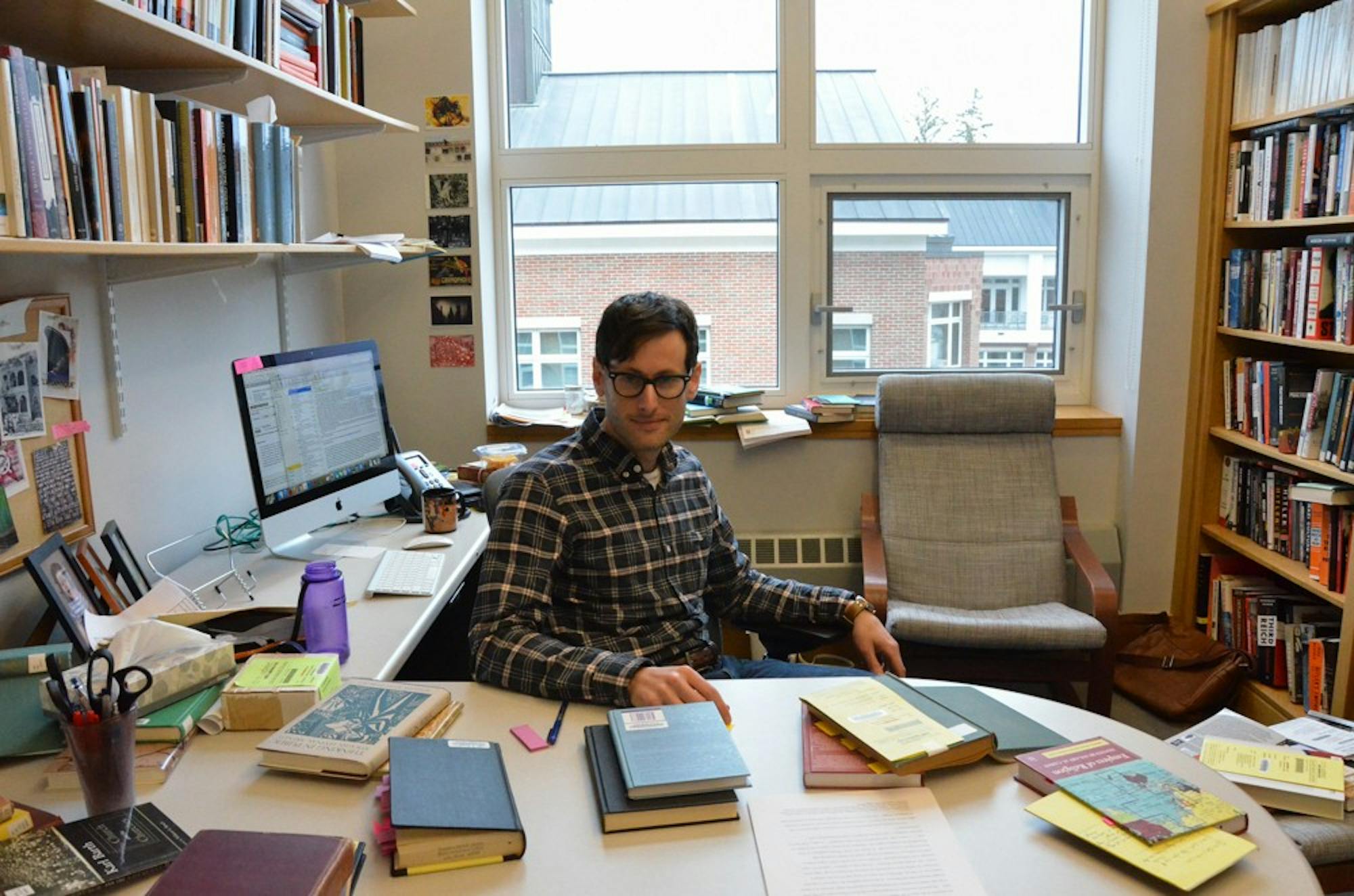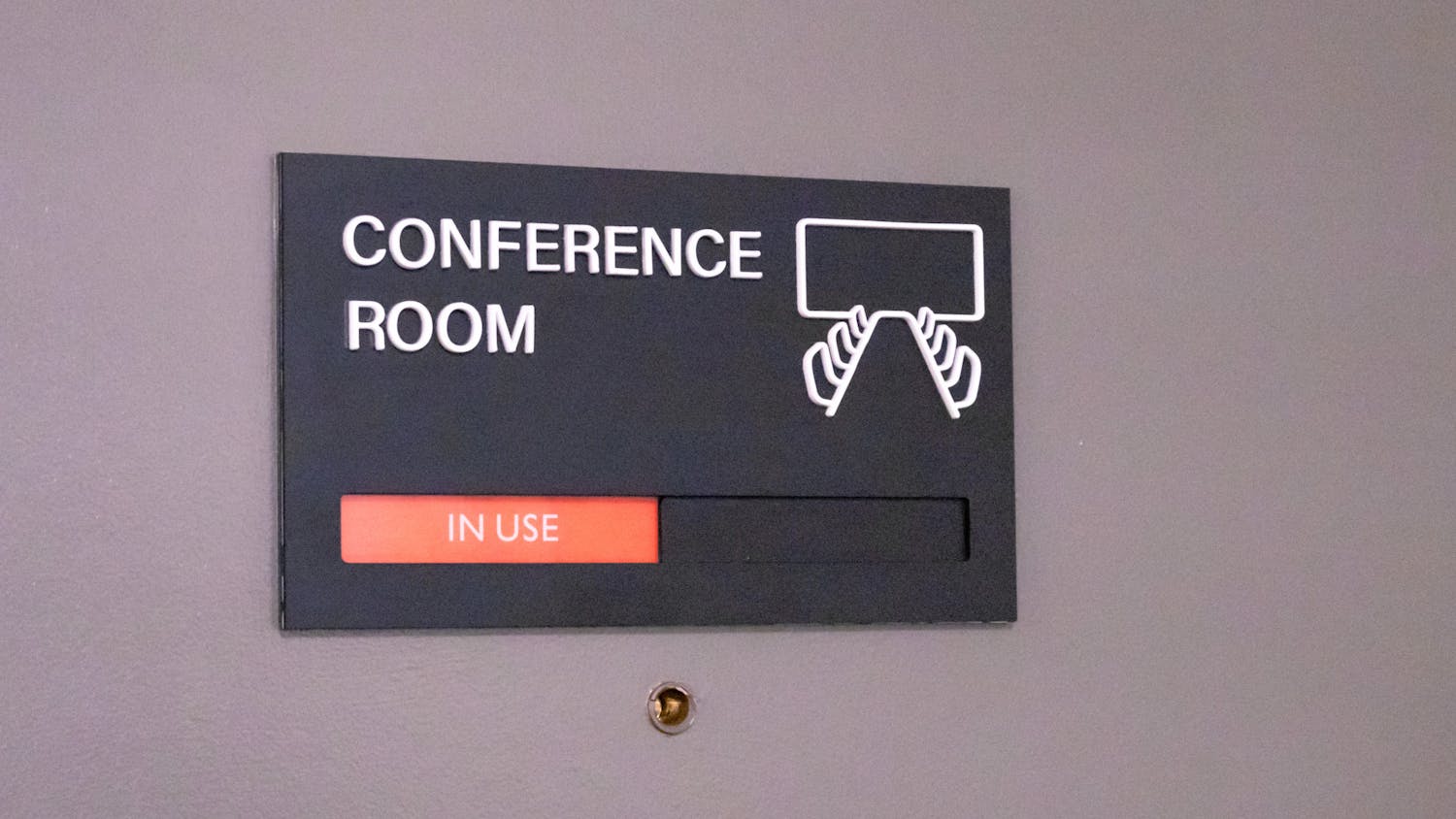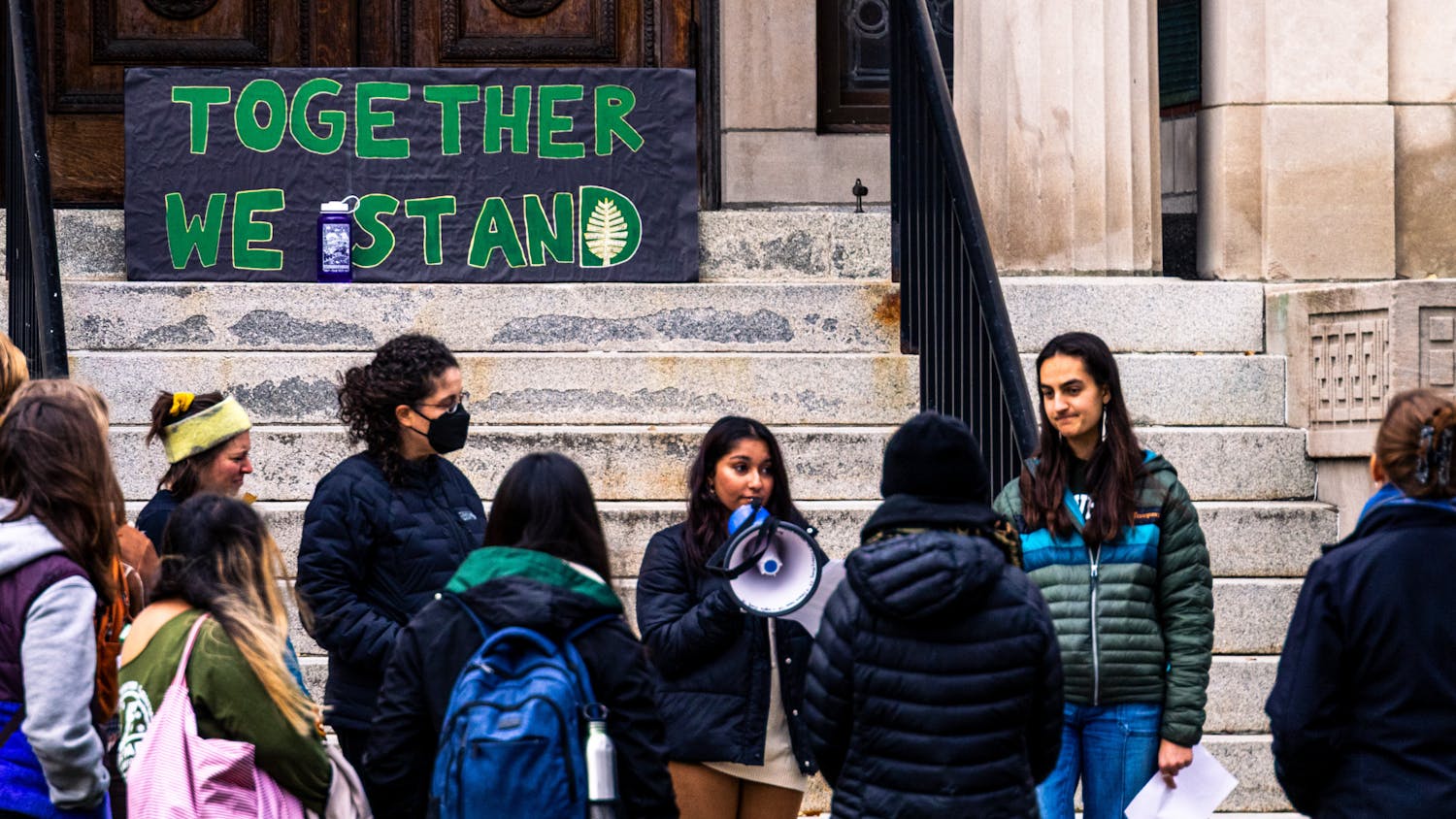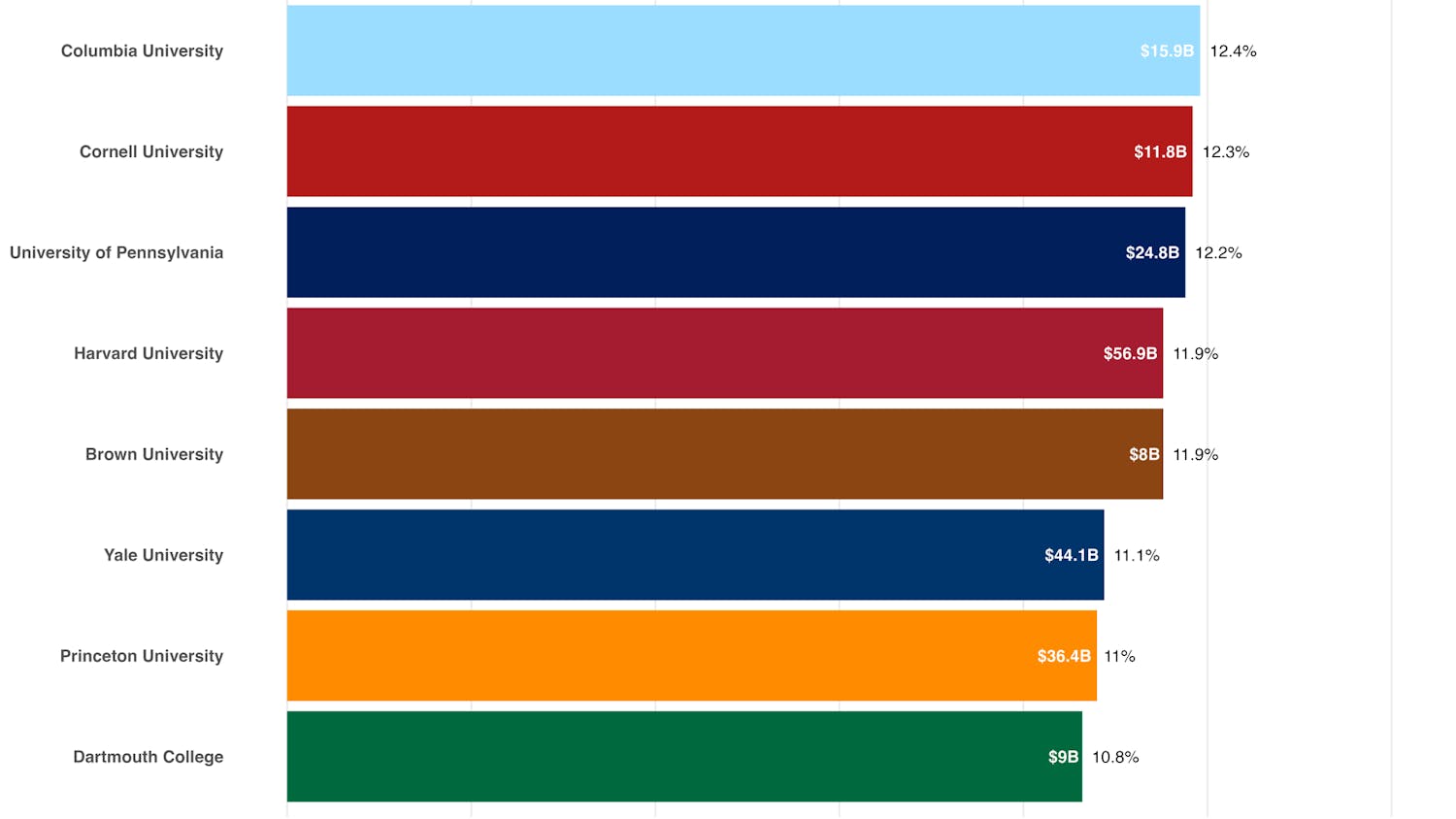History professor Udi Greenberg’s own family history helps to explain why he chose his field of study. His grandparents were refugees from Nazi Germany who fled to South Africa. In the process, his family went from racially persecuted Jews under the Nazis to elite whites under the apartheid regime. His parents, objecting to the racism in South Africa, then left for Israel. Growing up in Israel, Greenberg himself never thought of himself as white, as race was not talked about because people mostly divided themselves by religion, he said.
“I think that’s what really sparked my interest in history, of trying to understand why the same family would have a totally different social role and political role based on the historical moment in which we live.” Greenberg said.
Greenberg recently received the 2016 European Studies Book Award for his debut book, “The Weimar Century: German Emigrés and the Ideological Foundations of the Cold War” (2015). The book looks at a number of individuals, products of Weimar-era Germany, who went on to influence the reconstruction of a democratic post-war Germany as well as American foreign policy at the beginning of the Cold War.
“Studying history ultimately is trying to understand why everything that seems obvious and normal is not,” he said. “The belief of historians is that everywhere you look some process and choices by people led you to be there,” he said.
Greenberg was not even aware he was in contention for the award. When submitting a manuscript of the book he was told to list some awards his book could potentially be nominated for. He didn’t spend much time thinking about it and listed a few he was familiar with, forgetting about it for two years. Then one day, Greenberg, while sick at home, received an email informing him of his success.
The book started when Greenberg was a graduate student thinking about the legacies of the Weimar Republic, and particularly how figures from the Weimar Republic influenced the creation of a democratic Germany after World War II. Partially influenced by his wife, history professor and Cold War scholar Jennifer Miller, Greenberg began to read more about the Cold War. Greenberg was struck by how many of the figures he was interested in became important figures in the United States.
“Most of them upon arriving to the United States as refugees in the late 1930s, with some exception, were fairly marginal figures,” he said. “Their English wasn’t very good, they mostly found positions as visiting professors at small branch universities.”
However, with the American entry in World War II, the linguistic, cultural and political knowledge of the German émigres help place them in positions of influence in American government.
Any book relating to Europe written by a first-time author was eligible for the award. The committee awarding the prize considered 65 books, book award committee chair Rima Wilkes said.
Greenberg’s book clearly defied expectations, Wilkes said.
“I picked up the book and said ‘look at this snoozefest I have to read,’” Wilkes said. “My expectations for this book were so low and I started reading it and it was just amazing. That’s an amazing book when you can take a reader who is so not predisposed to what your topic and is and be riveted.”
Greenberg’s book was ultimately voted as the top book on the shortlist by all but one member of the committee.
“It just starts with the writing,” Wilkes said. “Good writing distinguishes itself from the first paragraph. There was also the scale of the research. It’s an ability to tell a good story. It draws attention to a group of people you never would have thought about.”
The time period from the beginning of his dissertation research to the completion of the book was ultimately seven years. Greenberg’s academic journey has taken him from the Hebrew University of Jerusalem, where he received his undergraduate degree and doctorate, to Germany and the U.S., ending at Dartmouth, where he received tenure last year.
Moving between countries affected Greenberg’s outlook on his work.
“You become especially aware of what your assumptions are about what is normal and what is not,” he said.
Though Greenberg was hired in a faculty search for a professor specializing in European intellectual history, his work is not limited to this topic. History professor Edward Miller called Greenberg both “an international historian” and an “intellectual historian.”
“His work really stretches across sub-fields. He’s connecting ideas to institutions, to international politics,” he said.
At Dartmouth, Greenberg teaches a range of courses, from first-year seminars to senior seminars.
“When you teach the first-year seminar, there’s the excitement and energy that comes with it that’s always stimulating.” Greenberg said. “With senior seminars, they are really confident. I don’t think of it as my class, I think of it as my students’ class.”
Greenberg singled out two classes which he particularly enjoys teaching: his class on World War II, because it has a majority of non-majors who bring a wide variety of perspectives, and his class on modern European thought, because it is discussion-based and runs as a seminar.
In his classes, Greenberg’s curiosity carries over into his teaching methods, Miller said. His lectures are organized around one or more interpretative questions and his discussions are centered around getting students to think critically about those questions.
Maggie Finn ’16 has taken three classes with Greenberg, and he was also her major advisor.
“He’s amazing,” Finn said. “He’s probably the best professor I’ve had at Dartmouth in terms of his lectures, and in terms of how helpful and how supportive he is in improving your writing.”
Finn also appreciated how Greenberg defies the hierarchical relationship of the professor and the student, recalling how the two eagerly discussed a show they both watched that depicted a world in which the Nazis had won the war.
After taking Greenberg’s class on World War II, which was Yoojin Chae ’17’s first history class, she wanted to become a history major.
Chae, an international student whose first language is not English, was apprehensive about expressing herself in discussions or on paper. Greenberg helped her go through the main arguments of readings in office hours and gave her very specific feedback.
“The general encouragement made me want to try harder and gave me more confidence in history classes in general,” Chae said.
In addition to his teaching and research, Greenberg served on the Curriculum Review Committee that produced recommendations on academic rigor and grade inflation.
“The three main things that faculty owe to Dartmouth are research, teaching and service, and he’s definitely contributed on all three of those.” Miller said.
In return, Greenberg greatly appreciates the academic environment of U.S. and Dartmouth specifically.
“I found academic life in the United States both from the point of view of students and scholars to be so much more vibrant, exiting and energizing than anywhere else,” Greenberg said.
He noted the greater number of conferences, publications and institutions in the U.S. In teaching, Greenberg also pointed out the difference between instruction in the U.S. and instruction in Germany and Israel, where classes meet once a week and one-on-one student faculty meetings are rare.
“What professors demand from students and what students can expect from professors is not comparable to the kind of intensity that one sees in the United States,” Greenberg said.
At Dartmouth, Greenberg was excited by the combined emphasis on teaching and scholarship.
“There is an expectation you will be good at everything you do,” he said.
Dartmouth’s rural setting helps to alleviate the demands of high expectations for professors.
“I find academic life to be very demanding and often exhausting and stressful, and to have this experience in a place where everyday life is really easy,” he said. “There’s no commute, there’s no noise, is really great, especially in the spring and summer.”
History professor Stefan Link, who is from Germany, echoed Greenberg’s sentiments about the American academic culture in the discipline of history. In Germany, Link said the standard for historians was “more or less” to try and spend at least one academic year in the U.S. and that academics closely follow what happens at major American institutions.
History professor Paul Musselwhite, originally from the United Kingdom, also noted the distinct integration of students into U.S. colleges.
“[In the United Kingdom] you are not as involved in your students’ lives,” he said. “You teach undergraduates in a way that you’d teach graduate students in this country, in a sense. You are less required to teach broad survey courses.”
History and East Asian studies professor Soyoung Suh, who — unlike Link, Greenberg and Musselwhite, specializes in non-Western history — was more critical of the College for its approach to international scholarship.
“I don’t think Dartmouth shows any initiative in accommodating internationalism in scholarship,” Suh said, adding that she thinks the College did not compare well to her previous institution, the University of California, Los Angeles, which has a greater mass of international scholars and a more “dynamic culture,” she said.
“I want to see more intellectual flexibility to accommodate different approaches so that we can provincialize the American perspective as just one of many,” Suh said.
Greenberg himself is beginning his next book project, tentatively titled “Days of Fire: Protestants, Decolonization, and European Integration, 1885-1961.” The book investigates how Protestants and Catholics, who in the 19th and early 20th century Europe hated each other intensely, made peace with each other in the 1950s and 1960s. Greenberg speculates this change may be the result of decolonization and the collapse of European empires.




